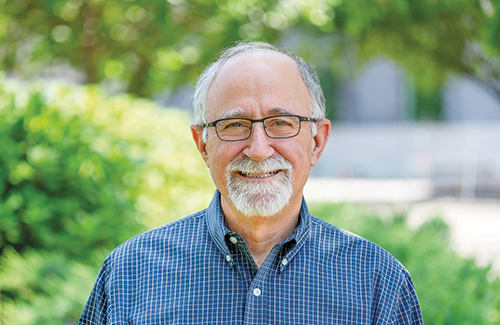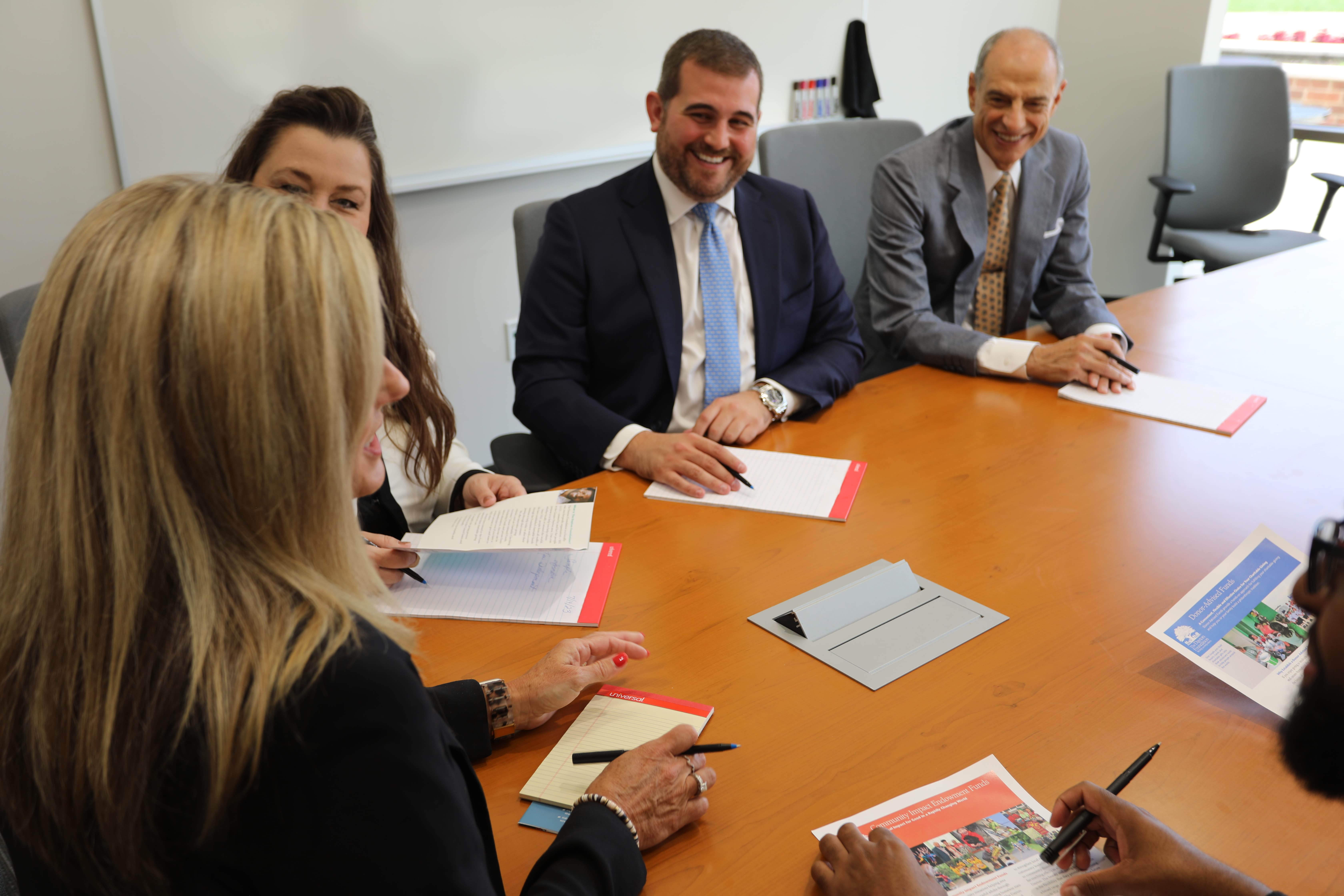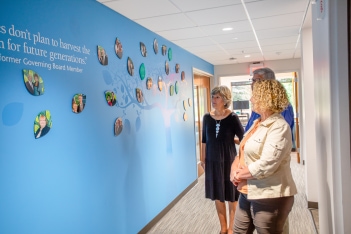As we continue our series on individuals and efforts inspiring change throughout Greater Dayton, I want to introduce Joe Sciabica, executive director for the Dayton Workforce Coalition.Joe has more than three decades of experience in a variety of United States Air Force engineering, senior technical management and senior executive service leadership positions, including a tenure as the CEO and president of Universal Technology Corporation (now ARCTOS). This experience makes him the perfect “changemaker” to lead DWC. The Dayton Foundation is helping to convene community partners that are actively engaged in the local workforce opportunities for this new collaborative effort. The Foundation also has awarded $500,000 over three years to lift up this initiative.
Joe Sciabica
Launched in 2023, it is focused on developing and aligning career pathways with industry needs to strengthen our region’s workforce, while simultaneously fostering a vibrant, inclusive community where everyone can access innovative, career-appropriate education and training.
What is Dayton Workforce Coalition’s mission?
Joe: Created in response to the urgent need across the region for a skilled labor force, DWC’s mission is to empower individuals and families by providing access to specialized education tailored to high-growth and small business industries throughout the region. DWC will operate as a central hub for workforce development to unify the efforts of business leaders, educational institutions, local governments, military representatives and community organizations to address Greater Dayton’s workforce challenges.
What do you see as the community’s greatest challenges? How does DWC work to meet those challenges?
Joe: The Dayton Region is at a pivotal point where the rapid growth of job opportunities is outstripping the current rate of workforce development. In 2023, there were 26,000 unfilled job postings, and this figure is projected to skyrocket to around 59,000 by 2030. The growing gap between the supply and demand for skilled labor poses a significant threat to our local economy. If unaddressed, it potentially could lead to $4.1 billion in lost earnings for workers and $6.1 billion in lost regional GDP, which could drive employers and skilled workers to relocate outside the region or state.
“This initiative offers a unique opportunity to significantly reduce poverty by building a robust talent pipeline in the region. Together, we can create a stronger, more resilient Dayton!”
– Joe Sciabica, executive director, Dayton Workforce Coalition
In addition, the Dayton Region currently falls below the state average for retaining its college-educated workforce, particularly in higher education fields such as healthcare and STEM. With labor force participation expected to decline from 2024 to 2030 by 112,000 workers due to retirements and broader economic trends, a coordinated effort is crucial.
DWC will work to address these challenges by bringing together various stakeholders to develop and execute comprehensive strategies in these areas: increase workforce participation, college graduate and workforce retention, and migration from around the United States to the region. Our initiatives will be inclusive, community-driven and responsive to local needs. This will ensure equitable access to in-demand jobs for all individuals and guide employers to the right set of ecosystem resources to meet their workforce needs.
How is DWC inspiring change in Greater Dayton?
Joe: We are revolutionizing workforce development by transforming how employers, employees and educational providers will collaborate through collective impact to build a skilled and resilient workforce. Employers will play a crucial role by creating an inclusive and dynamic labor market that values diversity, equity and the fair evaluation of talent. They will set the tone for an adaptable and innovative workforce capable of meeting evolving industry demands. Employees will be encouraged to engage in continuous learning and align their career paths with changing market needs, becoming active agents in their professional development and upward mobility.
Additionally, educational institutions will be pivotal in bridging the gap between learning and employment. They will need to ensure that academic programs meet current and future job market requirements, as well as to prepare students with the skills necessary for long-term success. By aligning these efforts, DWC will help build dynamic talent pipelines that connect education with employment opportunities.
Our initiative also will focus on community engagement and equity. We actively will collaborate with communities, businesses and educators to build awareness and support for career-appropriate education and opportunities. This approach will help to close opportunity gaps for underrepresented and underserved populations, ensuring that everyone has a fair chance to succeed.
What do you see on the horizon for Greater Dayton and its STEM workforce?
Joe: Looking forward, the future of Greater Dayton’s STEM workforce is both promising and challenging. Fortunately, as job opportunities in STEM fields continue to expand, the demand for a highly skilled workforce also will grow. The challenge is that many of our STEM education and skilling agencies are mostly saturated by current demands. We’ll have to be creative in how we address the demands.
To improve the quality of life for all citizens in the Dayton Region, DWC is committed to positioning Dayton as a national leader in workforce readiness and development and ensuring that opportunities for economic advancment are available. By empowering individuals with skills, credentials and education, DWC will help provide family sustaining wage jobs and promote economic growth. This initiative offers a unique opportunity to significantly reduce poverty by building a robust talent pipeline in the region. Together, we can create a stronger, more resilient Dayton!
For more information or to get involved with the Dayton Workforce Coalition, contact Joe Sciabica at jsciabica@daytonfoundation.org or (937) 225-9919.
– Michael M. Parks, CFRE, President








